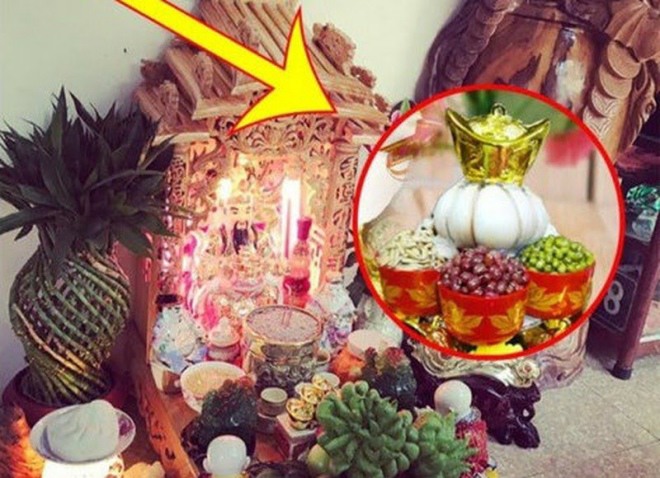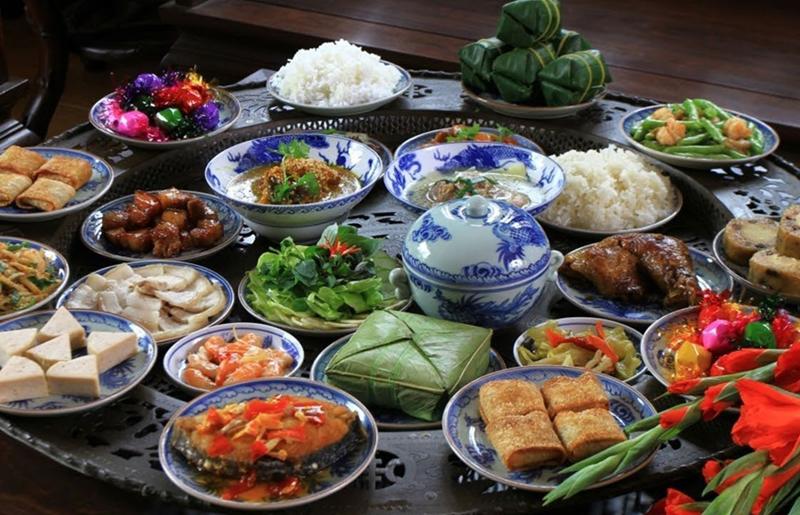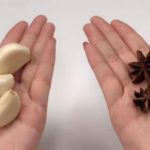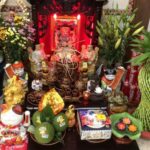Garlic is a pungent spice that packs a flavorful punch and contains many stimulating qualities. However, consuming too much garlic can lead to body odor and a shorter temper, which is not conducive to Buddhist worship. Therefore, when preparing a savory meal for ancestral offerings, families typically refrain from using garlic as a seasoning.
The traditional savory offering consists of six dishes and four bowls, featuring classic dishes such as a bowl of vermicelli, bamboo shoots, meatballs, a dish of chicken, stuffed meatballs, pork, fried nem, stir-fry, sticky rice cakes, steamed glutinous rice, and a dipping sauce. Of course, the number of dishes and the menu can vary depending on the family’s circumstances.

Why is garlic offered to the God of Wealth to attract luck, but it is strictly forbidden to offer it to the ancestral altar?
This savory spread includes a variety of flavors, from sour to spicy, salty, and sweet. The offering is presented to the Buddhist altar and ancestral altar, symbolizing a wish for a fulfilling and abundant life, with prosperous and well-fed descendants.
In reality, some families do not abstain from using garlic, as they believe that as long as the intention is pure and the food is prepared with care and deliciousness, their sincerity will be recognized. However, for those who want the added peace of mind and a calmer spirit, omitting garlic is an option.
In the spiritual culture of Vietnamese ancestor worship, garlic is believed to be effective in warding off evil spirits and thieves due to its strong and pungent odor. However, some consider it disrespectful to intentionally offer it to their ancestors.

Garlic is considered impure
Additionally, in teachings related to Buddhism, Buddha instructs followers to avoid the five pungent herbs (garlic, onion, leek, chive, and asafoetida). These spices have a strong odor and can agitate the temperament, leading to lustful thoughts and actions. Thus, when making offerings to Buddha, all dishes containing these spices are avoided to maintain purity and respect.
Altars dedicated to saints also specifically avoid garlic due to its strong and impure odor.
The Ultimate Rice Storage Solution: Keep Rice Fresh and Pest-Free for Years
“Moth infestations in rice are a nuisance and can greatly diminish its nutritional value and taste. This is a common problem faced by many, and it’s time to equip yourself with a simple, cost-effective solution to get rid of these pests. It’s a nifty trick that every homemaker should know, and it won’t cost you a dime!”



































